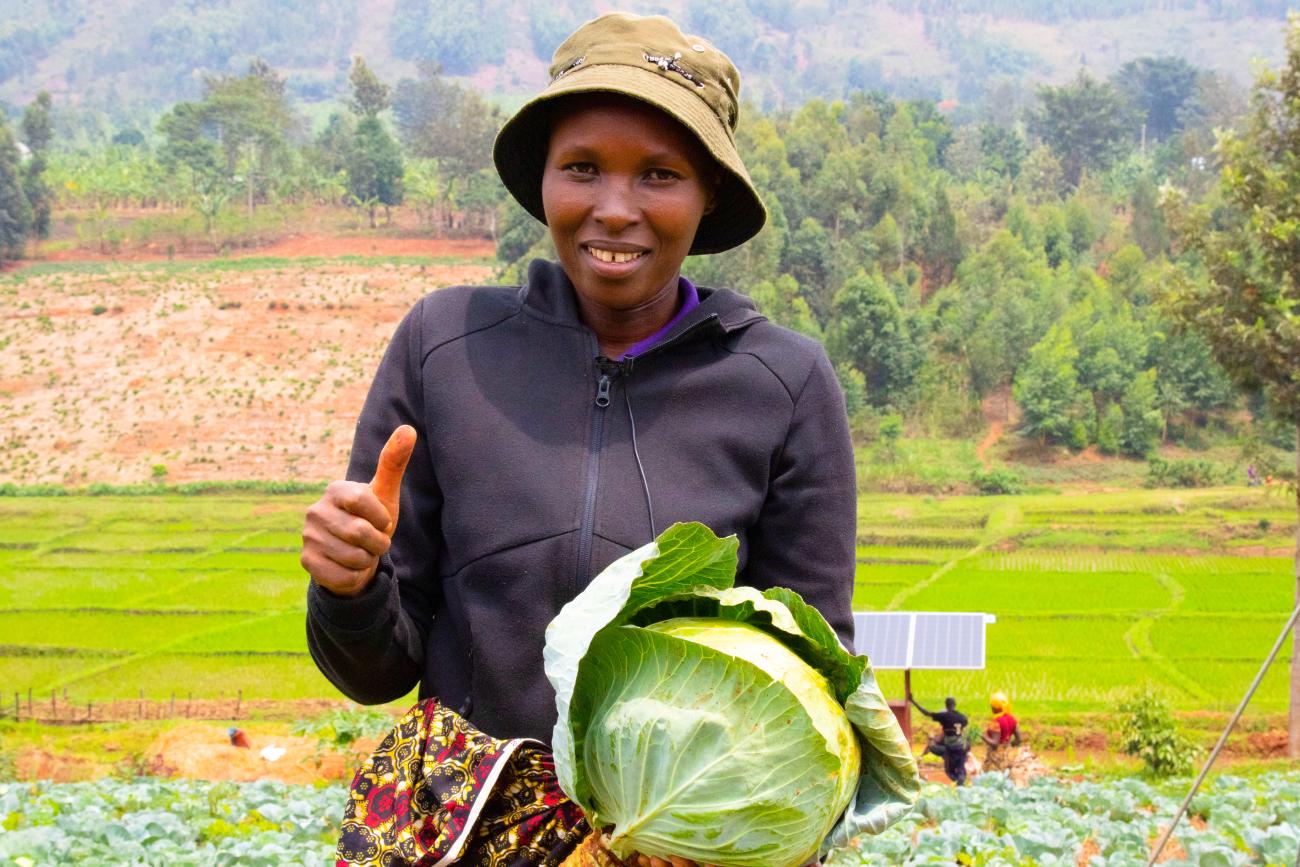SOLAR-POWERED IRRIGATION: CHANGING LIVES OF RURAL WOMEN FARMERS IN NGOMA DISTRICT
According to the National Institute of Statistics of Rwanda (NISR), the agriculture sector contributes nearly 31% to the country’s economy. Yields in the eastern part of the country are mainly maize, beans, fruits and vegetables, which are highly susceptible to climatic impacts.
Ngoma district in Eastern Rwanda is a semi-arid region with limited rainfall. The district is one of the poorest throughout the entire Eastern Province, with 48% of the population being classified as poor. In this district there are 113 females per every 100 males. Over 70% of these females are employed in agriculture, compared to 63% of their male counterparts. They face serious challenges resulting from erratic and unevenly distributed rains as well as a long dry season, which leads to below-average agricultural harvests and pastoral production, and at times even total crop failure that affects household food security, increases poverty levels, and malnutrition in children.
With the aim of finding sustainable solutions to these challenges, the Joint Programme ‘Accelerating Progress Towards Rural Women’s Economic Empowerment’ (JP RWEE) is empowering women in Ngoma district through the establishment of solar-powered irrigation systems, started in the three most affected sectors of Jarama, Murama and Sake. Solar-powered irrigation systems are more sustainable, easy to use and cost-effective for rural women in the region to address the climatic conditions.
“I am happy the programme supported my cooperative with a solar powered irrigation system. Before receiving the irrigation system, members of my cooperative including myself were experiencing many challenges including crop failure due to limited rainfall, and this negatively impacted on our household income and food security. Now I’m very happy our cooperative earnings have increased from less than RWF 200,000 to over RWF 2 million per season through the sale of fruits and vegetables from the solar irrigated land.”
Said Goretti, President of the women’s cooperative - Twaguke Murama in Ngoma district.
Goretti’s cooperative is one of the many that have been supported under this programme that is contributing to reducing child malnutrition in the wider region.
The JP RWEE is a global initiative to secure rural women's livelihoods and rights in the context of sustainable development.







